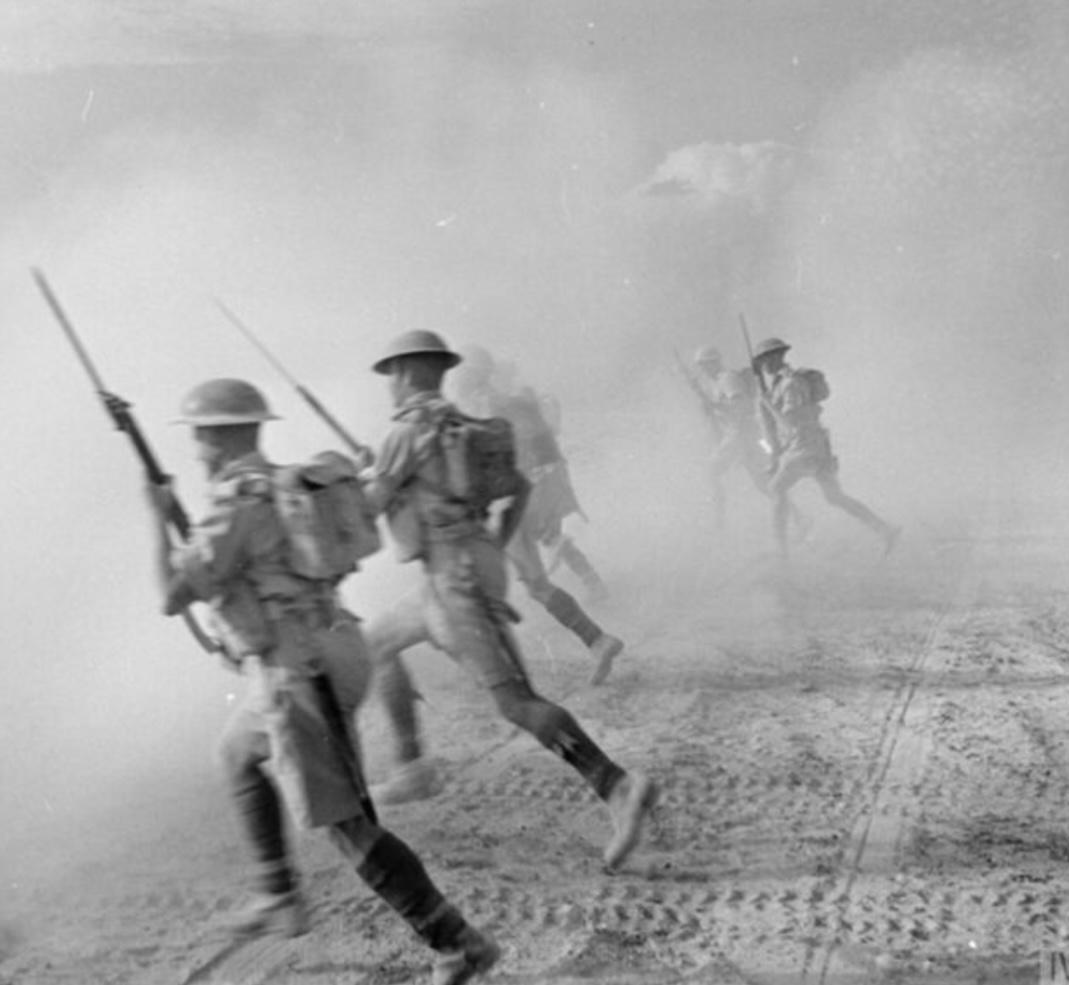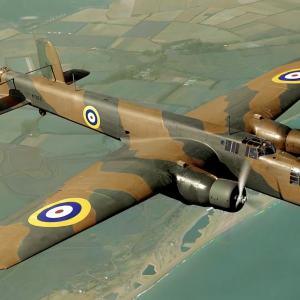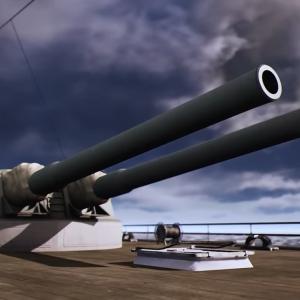
On this day in military history…
The Second Battle of El Alamein, fought between 23 October and 4 November 1942, was one of the most decisive clashes of the Second World War. It marked a major turning point in the North African campaign and restored Allied confidence after years of setbacks. Under the command of General Bernard Law Montgomery, the British Eighth Army shattered Field Marshal Erwin Rommel’s Afrika Korps, forcing the Axis forces into a long retreat that would end in their expulsion from North Africa.
By the middle of 1942, the situation in North Africa had grown desperate for the Allies. Rommel’s experienced and determined troops had driven deep into Egypt, threatening Alexandria and the Suez Canal, both vital to Britain’s war effort. The Eighth Army was weary, its equipment worn, and morale dangerously low. When General Montgomery took command in August 1942, he inherited an army that had suffered repeated blows. What he brought to it was discipline, clarity of purpose, and a confidence that transformed its spirit. He reorganised his forces, replaced uncertainty with determination, and told his men, “We will stand and fight here. If we can’t stay here alive, then let us stay here dead.”
Montgomery understood that success in the desert would require careful planning, deception, and overwhelming strength. He refused to be hurried into battle, ensuring that his troops were fully prepared before launching his offensive. His plan was to break Rommel’s defensive line at El Alamein, where the desert was hemmed in by the sea to the north and the Qattara Depression to the south, preventing the large sweeping manoeuvres that Rommel had used so effectively in the past.
Before the attack, Montgomery set in motion an elaborate deception known as Operation Bertram. Dummy tanks and vehicles were built, fake pipelines laid, and false camps established to convince Rommel that the main attack would come from the south. Meanwhile, the real preparations were taking place in the north, hidden from German reconnaissance. This deception succeeded in spreading Rommel’s forces thinly across his defensive line.
On the night of 23 October, Montgomery launched his attack with one of the largest artillery barrages of the war. More than 900 guns fired in unison, lighting up the desert sky and pounding the Axis defences. Behind this thunderous barrage, the infantry began their slow advance through deep minefields, barbed wire, and fortified positions. Engineers worked tirelessly to clear paths through the so-called “Devil’s Gardens,” and Montgomery’s insistence on methodical progress ensured that his army maintained control of the battle’s pace.
As the days wore on, the fighting was fierce and unrelenting. Rommel’s troops resisted with their usual skill and tenacity, but Montgomery’s forces pressed forward with relentless determination. On 2 November, he launched Operation Supercharge, the final push designed to break the Axis line completely. British and Commonwealth armoured divisions drove through a narrow gap in the enemy defences, overwhelming what remained of Rommel’s strength. With his fuel running out and his troops exhausted, Rommel knew the battle was lost. Despite Hitler’s orders to hold firm, he began a retreat westward.
By 4 November 1942, the Eighth Army had achieved a complete breakthrough. Rommel’s once-feared Afrika Korps was in full retreat, leaving behind thousands of prisoners, tanks, and guns. The victory was total, and the long months of defeat and stalemate in the desert were finally over.
News of the triumph at El Alamein brought jubilation across Britain and the Commonwealth. After so many bitter losses—from Dunkirk to Tobruk—the British people finally had cause for celebration. Winston Churchill captured the national mood when he declared, “Before Alamein we never had a victory. After Alamein we never had a defeat.” The battle not only transformed the strategic situation in North Africa but also revived faith in Britain’s military leadership and lifted the morale of a nation that had endured years of struggle. Montgomery became a hero overnight, celebrated as the general who had finally outmanoeuvred Rommel, the Desert Fox.










